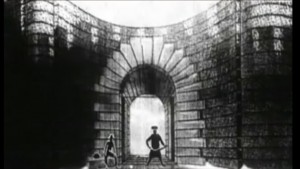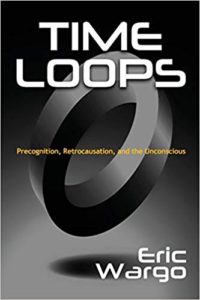Kafka and the UFO Gnosis

Rich Reynolds has a nice piece over on UFO Iconoclast comparing ufology to Samuel Beckett’s existentialist play Waiting for Godot. It’s a really apt comparison: The two main characters wait around for a person who is never going to come, and this waiting keeps them from becoming fully conscious and responsible for their lives.
A similar comparison I would make is to practically everything by Kafka. Ufology is murky, increasingly maddening, and you are perpetually unclear where you stand; you seem to be on the brink of figuring out some piece of the puzzle, and then you realize you are at the back of a line of aging people who have been standing in that same line their whole life, clutching essentially the same speculations in their dusty binders and briefcases, still awaiting confirmation from some authority that they have made progress though they have essentially gotten nowhere.
The whole idea of “disclosure,” particularly, reminds me of the central parable of The Trial. A man from the country comes before the Door of the Law, wanting access, but he is stopped by a doorkeeper who makes him wait, although not without accepting bribes “just so you don’t feel you’ve left anything untried.” The man waits his whole life, and finally, as he’s about to die, he finally asks the doorkeeper, “Why, if this is the Door of the Law, has no one else come seeking entry all this time?” To which the doorkeeper says, “Because this door was meant for you alone. I’m now going to shut it.” A brilliant light shines from deep within the edifice as the door is shut.
I see it as a sort of Gnostic lesson having to do with experience versus faith. The only important knowledge is experiential self-knowledge, and it can’t be thought of as coming from outside oneself, in the form of a religious or secular authority (such as the government, the UFOs themselves, or any other “subject presumed to know”—to borrow a term from psychoanalysis). You’ll get nowhere until you include the knower (you, the man from the country) in the known; the door, the light shining through it, and even the doorkeeper and especially the man himself are all part of the same picture.
I suspect that, when it comes to UFOs, what we need to know is already right in front of us, and the whole scene of “authorities keeping knowledge from us” is a bit of self-parody within a larger riddle (or koan) addressed to us, not the thing keeping us from cracking it.
We need to recognize ourselves as knowers. Dwelling on the idea that truth is “out there” is a way we overlook that explosive gnosis until it is too late.
____




Very fine post! Thank you for writing it.